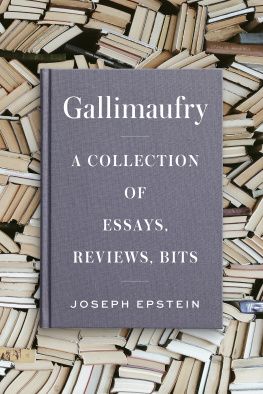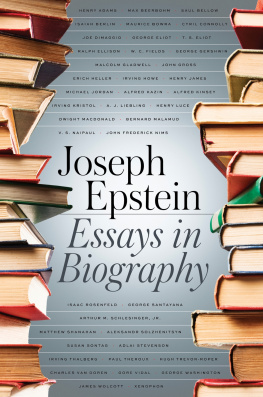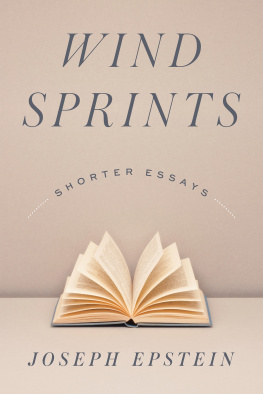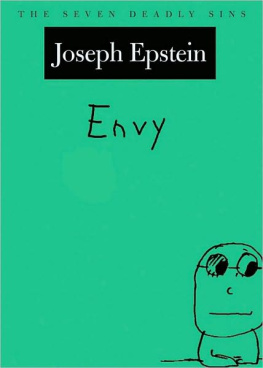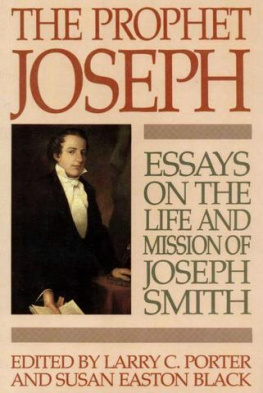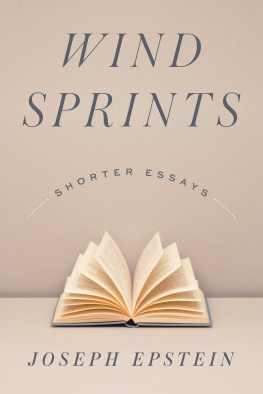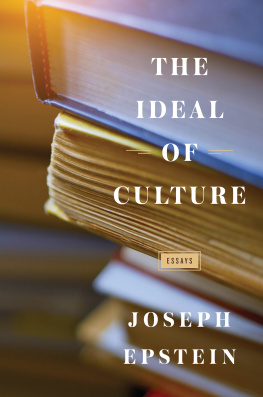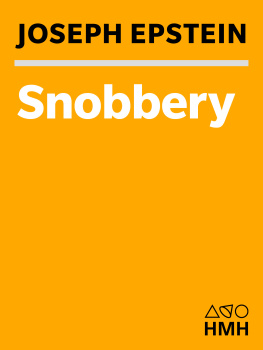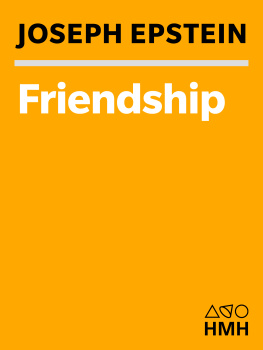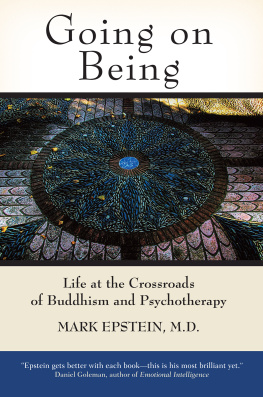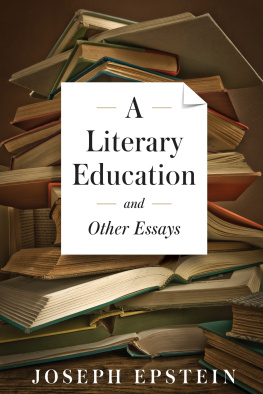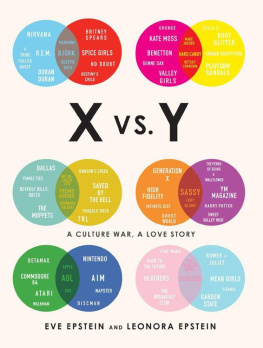Joseph Epstein - The Ideal of Culture: Essays
Here you can read online Joseph Epstein - The Ideal of Culture: Essays full text of the book (entire story) in english for free. Download pdf and epub, get meaning, cover and reviews about this ebook. year: 2018, publisher: Axios Press, genre: Art. Description of the work, (preface) as well as reviews are available. Best literature library LitArk.com created for fans of good reading and offers a wide selection of genres:
Romance novel
Science fiction
Adventure
Detective
Science
History
Home and family
Prose
Art
Politics
Computer
Non-fiction
Religion
Business
Children
Humor
Choose a favorite category and find really read worthwhile books. Enjoy immersion in the world of imagination, feel the emotions of the characters or learn something new for yourself, make an fascinating discovery.
- Book:The Ideal of Culture: Essays
- Author:
- Publisher:Axios Press
- Genre:
- Year:2018
- Rating:5 / 5
- Favourites:Add to favourites
- Your mark:
- 100
- 1
- 2
- 3
- 4
- 5
The Ideal of Culture: Essays: summary, description and annotation
We offer to read an annotation, description, summary or preface (depends on what the author of the book "The Ideal of Culture: Essays" wrote himself). If you haven't found the necessary information about the book — write in the comments, we will try to find it.
The Ideal of Culture: Essays — read online for free the complete book (whole text) full work
Below is the text of the book, divided by pages. System saving the place of the last page read, allows you to conveniently read the book "The Ideal of Culture: Essays" online for free, without having to search again every time where you left off. Put a bookmark, and you can go to the page where you finished reading at any time.
Font size:
Interval:
Bookmark:
No page is more welcome to the Muses than that which knows how to combine grave and gay, and to refresh the weary mind with helpful trifles.
Samuel Johnson
Of all the ways of acquiring books, the one considered most reputable is to write them.
Walter Benjamin
M y friend Edward Shils held that there are four institutions of learning in modern societies. These are the classroom, serious magazines and newspapers, the conversation of intelligent friends, and new and especially used bookstores. I would add a fifth, though it is not open to everyone: writing for the public. I dont recall when I first heard the phrase, applied to writers, getting ones education in public, or who originated it, but I have come to think it applies to me, a writer who did not come to the task of literary composition especially well equipped but, so to say, learned on the job. But then maybe all writers are essentially interns, perpetually on what was once called OJT, or on the job training.
An example: I was perhaps thirty-years old when I received a call from the editor Eve Auchincloss, at Book World , asking if I would like to review a new edition in four volumes of My Past and Thoughts , the memoirs of Alexander Herzen. After hesitating perhaps a nanosecond, I said, Yes, I would. Eve prescribed the length of review wanted and said that the books would be in the mail. I thanked her, hung up, and asked myself, Who is Alexander Herzen? I subsequently read the four magnificent volumes of this great nineteenth-century Russian writer, read about him in books by Isaiah Berlin, E. H. Carr, and others, wrote my 1,500 or so words, and became perhaps a touch, if not smarter, more knowledgeable about things it is necessary for a person with intellectual pretensions to know.
So it has been for me over the past decades, widening my knowledge by fresh readings, and deepening it, as I like to think, by writing about them. For the act of writing is itself an act of education, perhaps even before it can be considered anything so grand as an act of creation. The way this works is that, at the outset, writing forces the writer to realize what he doesnt know.
Over the years, I have agreed to write about certain subjects in full confidence that I could do so interestingly. Only when I began tapping out my first paragraph did I often come to realize that my thoughts did not extend beyond the drabbest clichs. Since I prefer to think I have a strong revulsion for clich, and a matching one for boredom, I find I must discover a new and interesting way to write about the subject. It is only in making the attempt to do so that I often come to realize that I knew things I didnt realize I knew. How do I know what I think until I see what I say, an aphorism attributed to E. M. Forster, has long been, if not my mantra, then my motto.
For me a good part of the joy in writingwhether it be writing essays or short storiesis in this element of self-discovery. I am not saying here that writing is a form of therapy, that what I discover is myself. Not at all. What I am saying is that writing is a method of general discovery. The probes, the telescope and microscope used in this discovery is the English sentence. Its syntax juggled, precise words found, everything set in place, the English sentence can yield mysterious secrets. Or so I have learned.
Writing, like hanging the next morning for Dr. Johnson, tends to concentrate the mind. Having to write about a book or an idea is different from simply reading or thinking in general. Writing requires herding the wild cats of stray observations and inchoate notions, and forces the organization of ones thought, at least to the point where it is presentable for public inspection. I know some writers who are incapable of concentrated thinking without a pen in hand or a computer keyboard under their fingers. I happen to be one of them.
And so I beat on, like the man said, boats against the current, continuing to attempt to further my education in public. I have been fortunate to have a small number of American and English editors abet me in the attempt, by finding things for me to write about or by agreeing to print things I have written and sent to them without their suggestion. As I look over the table of contents of The Ideal of Culture , I am mildly amused at the range of my interests, which run from Tacitus to Jewish boxers, from the concept of Cool to that of Cowardice, from Machiavelli to the Marx Brothers. Faith and begorrah, I seem to have got away with it.
A note of acknowledgement: I wish to thank John Podhoretz of Commentary, Philip Terzian of the Weekly Standard , John Kienker of the Claremont Review of Books , Abe Socher of the Jewish Review of Books , and Robert Messenger, David Propson, and Eric Gibson of the Wall Street Journal. I should also like to thank that unknown soul who invented the section of the weekend Wall Street Journal called Masterpiece, in which unknown or forgotten or misunderstood works of literary, architectural, visual art, or music are remembered and revived, however briefly, in relatively short articles. Whoever that person is, he or she has provided me with the opportunity to revisit many of the great works that comprise the Masterpiece section of this book. Finally, a word of thanks to Jody Banks, my patient and thoughtful editor at Axios Press, and to Hunter Lewis, publisher of Axios Press, for encouraging me to persist.
(2017)
D uring my teaching days, along with courses on Henry James, Joseph Conrad, and Willa Cather, I taught an undergraduate course called Advanced Prose Style. What it was advanced over was never made clear, but each year the course was attended by 15 or so would-beor, as we should say today, wannabenovelists and poets. Usage, diction, syntax, rhythm, metaphor, irony were some of the subjects taken up in class. Around the sixth week of the eight-week term I passed out a list of 12 or so names and historical eventsamong them Sergei Diaghelev, Francis Poulenc, Mark Rothko, Alexander Herzen, the 1913 Armory Show, John Cage, the Spanish Civil War, George Balanchine, and Jean Cocteauand asked how many of these items the students could identify.
The identification rate among my students was inevitably low, which did not much surprise me. I mentioned that, at their age (20 or 21), I should probably not have done much better, and then added:
But if as writers you intend to present yourself to the world as cultured persons, you have to know these names and events and scores of others, and what is important about them. This is not something that one gets up as if for an exam, or Googles and promptly forgets, but that must be understood in historical contextat least it must for those who seek to live a cultured life.
Oddly, no one ever asked what a cultured life was, and why it was worth pursuing. This may have been just as well for, though I believed I was myself by then leading (or earnestly attempting to lead) such a life, Im not sure I could have answered either question. Im going to attempt to do so now.
In 1952, the anthropologists Alfred Kroeber and Clyde Kluckhohn wrote a famous article, Culture: A Critical Review of Concepts and Definitions, in which they specified no fewer than 164 definitions of culture. Culture can, of course, refer to whole civilizations, such as Western culture or Asian culture; it can refer to national, ethnic, or social-class cultures, such as Israeli culture or Irish Catholic culture, or working-class culture. In all these senses it refers to the overarching aspirations and assumptions that underlay the ways that different peoples and groups have of understanding and dealing with the world.
Kroeber and Kluckhohn might today have to expand their number of definitions, for the so-called culture of corporations, professions, and athletic teams has become among the leading cant phrases of our time. Princeton University Press recently published a book with the title The Culture of Growth , and the movie star Gwyneth Paltrow not long ago noted that her civilized break with her husband contributed to the culture of divorce.
Font size:
Interval:
Bookmark:
Similar books «The Ideal of Culture: Essays»
Look at similar books to The Ideal of Culture: Essays. We have selected literature similar in name and meaning in the hope of providing readers with more options to find new, interesting, not yet read works.
Discussion, reviews of the book The Ideal of Culture: Essays and just readers' own opinions. Leave your comments, write what you think about the work, its meaning or the main characters. Specify what exactly you liked and what you didn't like, and why you think so.


